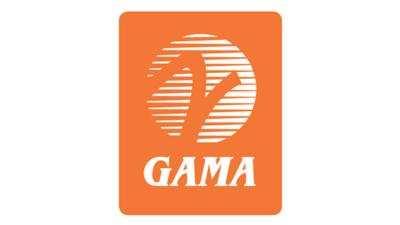Wed, Nov 06, 2024
GAMA Says Areas Critical For Resiliency Identified
As requested by Congress, the Aerospace Supply Chain Resiliency Task Force has issued its report to identify and assess risks to the U.S. aerospace supply chains and provide recommendations and best practices to mitigate those risks.

The General Aviation Manufacturers Association (GAMA) was one of the participants in the task force and Paul Feldman, GAMA’s Vice President of Government Affairs, issued the statement below regarding the report:
“The aerospace supply chain supports industry growth and opportunities. It involves tens of thousands of suppliers from all over the globe which provide parts, platforms and systems that require regulatory approval for use and installation, all of which may not be easily replaced or substituted. It is essential that both government and industry work together to ensure the stability of the supply chain, which was the reasoning behind the assembly of the Aerospace Supply Chain Resiliency Task Force.

“The task force found critical areas that can truly have an impact on the resiliency of the supply chain, some of which were addressed in the latest FAA Reauthorization law, if it is properly implemented. Improving both certification and workforce development, particularly as it pertains to having a trained workforce to issue new and amended certificates and licenses, would have a significant positive impact. Additionally, broad development and acceptance of the digitization of documentation for licensing and other applications, including aircraft certification, is urgently needed, not only for efficiently standardizing processes but for security. Having a reliable budget and funding process was also cited as important for the safety, efficiency and resilience of the air traffic control system. There are many agencies, outside of the FAA, involved in aerospace activities and these agencies must work to make industry more resilient to changes that impact critical resources in raw material,
manufacturing, components and assemblies.
“While our industries have been able to navigate supply chain constraints to the best of their ability it is critical that we have the government work with us to help create economic certainty, improve the regulatory process and support competition for the supply chain. We appreciate that the U.S. Congress requested this report and stand ready to work with them on its details and recommendations. GAMA, and other industry stakeholders, also looks forward to further engaging with federal agencies to strengthen the resilience of our invaluable aerospace supply chain.”
More News
“This vote sends an undeniable message to Air Transat management: We are unified, resolute, and have earned a contract that reflects today’s industry standards, not the>[...]
Aero Linx: Beech Aero Club The Beech Aero Club (BAC) is the international type club for owners and pilots of the Beech Musketeer aircraft and its derivatives, the Sport, Super, Sun>[...]
While Landing In The River, The Extended Landing Gear Contacted The Water And The Airplane Nosed Over, Resulting In Substantial Damage Analysis: The pilot of the amphibious airplan>[...]
From 2022 (YouTube Edition): Carrying the Legacy of The B-29 For Generations to Come We had a chance to chat with the Executive Director of B-29 Doc, Josh Wells, during their stop >[...]
Also: Cosmonaut Kicked Out, Airbus Scales Back, AF Silver Star, Russian A-60 Clobbered A Samaritan’s Purse humanitarian flight was hijacked on Tuesday, December 2, while atte>[...]
 Aero-News: Quote of the Day (12.07.25)
Aero-News: Quote of the Day (12.07.25) ANN's Daily Aero-Linx (12.07.25)
ANN's Daily Aero-Linx (12.07.25) NTSB Final Report: Lafferty Jack Sea Rey
NTSB Final Report: Lafferty Jack Sea Rey Classic Aero-TV: The B29 SuperFortress Doc - History in Flight
Classic Aero-TV: The B29 SuperFortress Doc - History in Flight Airborne 12.08.25: Samaritans Purse Hijack, FAA Med Relief, China Rocket Fail
Airborne 12.08.25: Samaritans Purse Hijack, FAA Med Relief, China Rocket Fail




